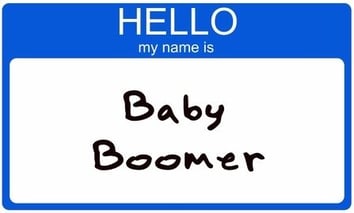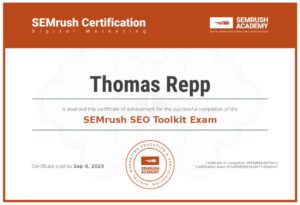 I have been working with a prominent B2B industrial manufacturer for years. The C-suite management is largely made up of baby-boomers, as defined by an age range of 51-70. All are talented individuals with specific skill sets; engineering, marketing, sales, etc. All have excellent people skills and I enjoy each of them.
I have been working with a prominent B2B industrial manufacturer for years. The C-suite management is largely made up of baby-boomers, as defined by an age range of 51-70. All are talented individuals with specific skill sets; engineering, marketing, sales, etc. All have excellent people skills and I enjoy each of them.
To a point. Then…I get frustrated when I see so many decisions based on a baby-boomer mindset.
When it comes to leveraging the web into a coherent marketing strategy, they have made their decisions based on rust-belted, gut-dominated, well-meaning, baby-boomer assumptions. My analysis is not just based on my own experience, but also comes from real data from Google & Millward Brown Digital Research, one of the most respected digital research companies in the world.
I have seen poor marketing decisions based on assumptions born out of an age group simply not fluent in the digital landscape and market realities. My reference “case study” is not the only offender…I see the baby-boomer mindset making poor marketing decisions daily when it comes to digital.
As my dear ‘Ol Pappy use to say, “Son, you don’t even know, what you don’t know”. So it is with many baby-boomers.
1: With a different mindset, most baby-boomers think buying decisions are made by their same age group.
Largely, baby-boomers dismiss the millennials as real buyers for obvious reasons. The baby-boomers tend to make their decisions based on an assumption that millennials are not making industrial purchasing decisions. This is what I see…and research from Google backs me up. The past 3 years have seen a 70% increase in B2B research by the 18-34 year olds.
2: With a different mindset, baby-boomers are marketing to their same age group.
Another misguided assumption is B2B & industrial marketing should target the executives at the top of the food chain. I see data and requests for information coming in daily from my clients. Using HubSpot, I easily see their digital foot print; Linkedin profile, twitter profile, etc. It is easy to see that the younger crowd is doing the research and having more influence on the purchasing decision in the C-suite. Again, Google’s data backs me up when they find that 64% of management will sign the purchase order, but 24% of the purchase orders will be signed by the millennials. Further, Google’s research says that millennials have much more influence than years past. From my experience, baby-boomers rely heavily on millennials to do the research.
I have personally witnessed company presidents telling a millennial engineer to research a product or service on the web, yet his own company’s content is not there to greet HIS prospects and customers.
3: With a different mindset, baby-boomers are focused on the wrong content strategy
I have been developing web strategies and SEO tactics for almost 15 years. The baby-boomers usually will tell me something like, “You know I go to Google & type in our brand name and it is only on page 2 or 3. Can you help us?”
Wrong focus.
The fact is over 70% of B2B buyers do not start their search with a brand or company name. Many times, they do not even know the brand name. No…they start their search with a generic, semantic search phrase. For example, “Who manufactures custom hydraulic manifolds in Michigan?” or “What are the typical costs to install a 20-ton industrial chiller?” Again, Google & Millward Brown back me up. Google tells us that B2B buyers will do 12 searches before they engage on specific company’s web site.
4: With a different mindset, baby-boomers think about responsive design & mobile marketing in their terms only
I will say, mobile and responsive design has been a hot topic lately, but I don’t believe the baby-boomers realize just how pervasive mobile is.
Google’s research tells us that B2B industrial buyers are using a mobile devise through the entire buyers’ journey. I am sure last night, as you were watching TV with your wife, you were on your smartphone searching for business related information. Right?
Your industrial buyers are comparing features, comparing prices, etc. Again, Google tells us 49% of B2B buyers even use their smartphones at work for research. There is 91% growth in B2B buyers using mobile devises throughout the buyers’ journey. WOW!
The point is this; do not just create a website with responsive design. That does not cut it. Design a website that offers your buyer a rich mobile experience. Your new industrial buyer demands it.
5: With a different mindset, baby-boomers are thinking “corporate capabilities” video
Again, video is mentioned when it comes to discussions concerning web strategy. However, the baby-boomer thinks just in terms of awareness. “Well, I realize we need to have a corporate capabilities video that features our plant floor”. Wrong.
Google says 70% of your buyers want to watch video throughout the buyers’ journey. They have no time for a video featuring your corporate story. Who cares? The millennials want product features and solutions. According to Google’s research, that is 52% increase in the last two years.
Your buyers’ want videos on product features on YouTube because they are easy to use and find…not just on your website.
Is your baby-boomer mindset thinking about marketing to a changing industrial buyer?
I hope so.
For a more up-to-date approach to industrial marketing, DOWNLOAD The Essential Guide to Industrial Marketing…The Inbound Way.
Subscribe to my twitter list: industrial-inbound at https://twitter.com/twrepp/lists/industrial-inbound/subscribers
Author:Tom Repp
A passionate marketer attempting to change the way industrial marketers leverage the web as a growth-oriented, lead generation machine. View all posts by Tom Repp




